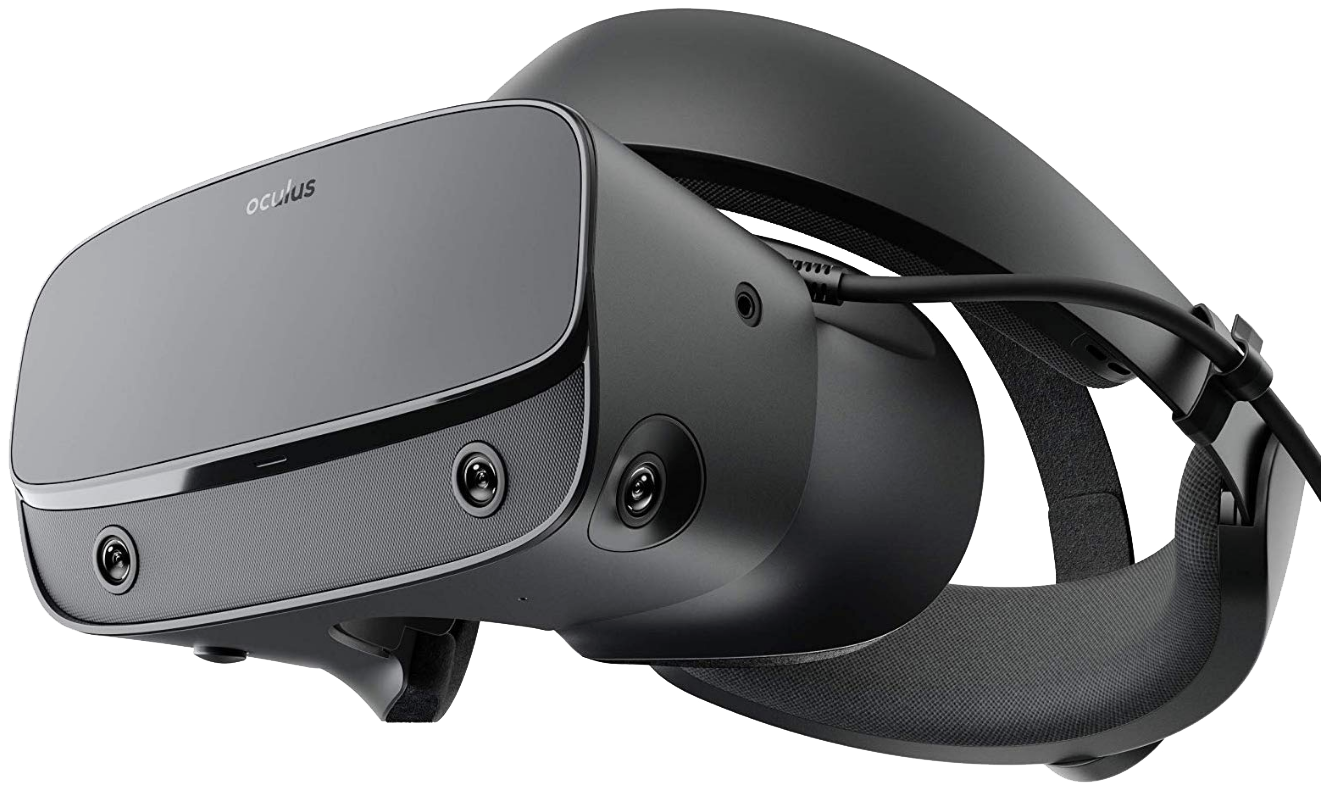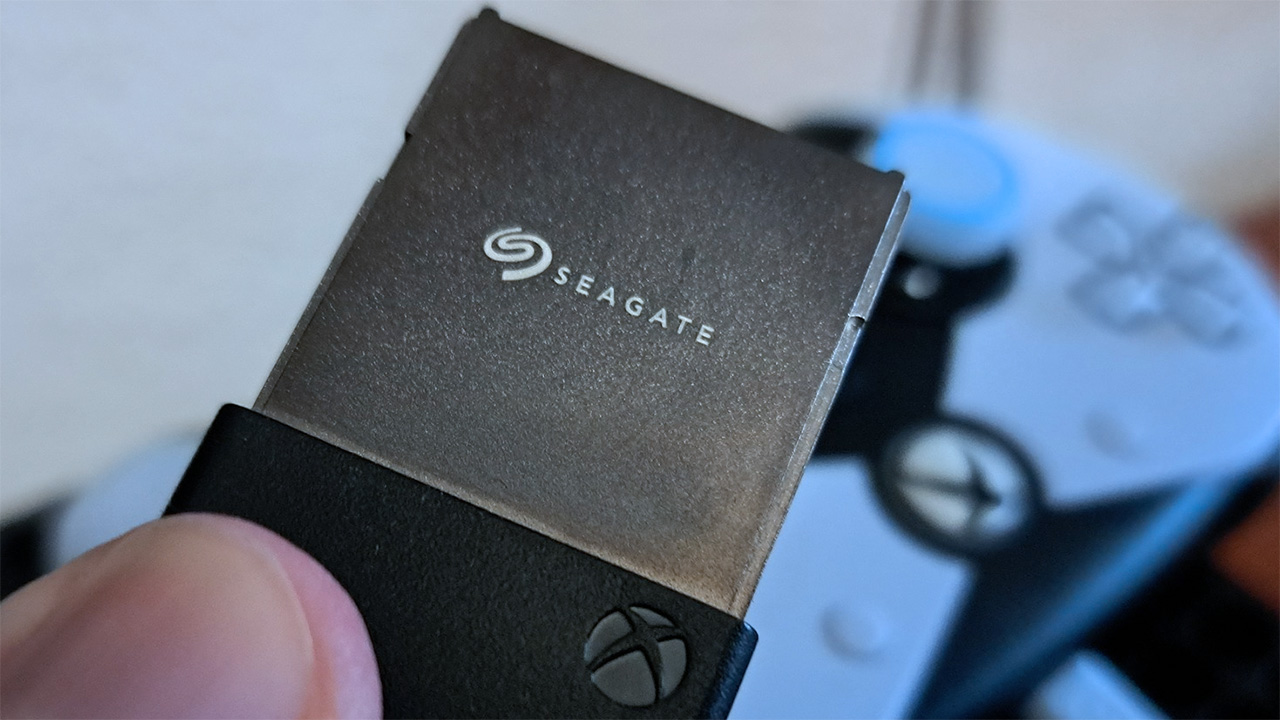How small can your Oculus Rift S playspace be?
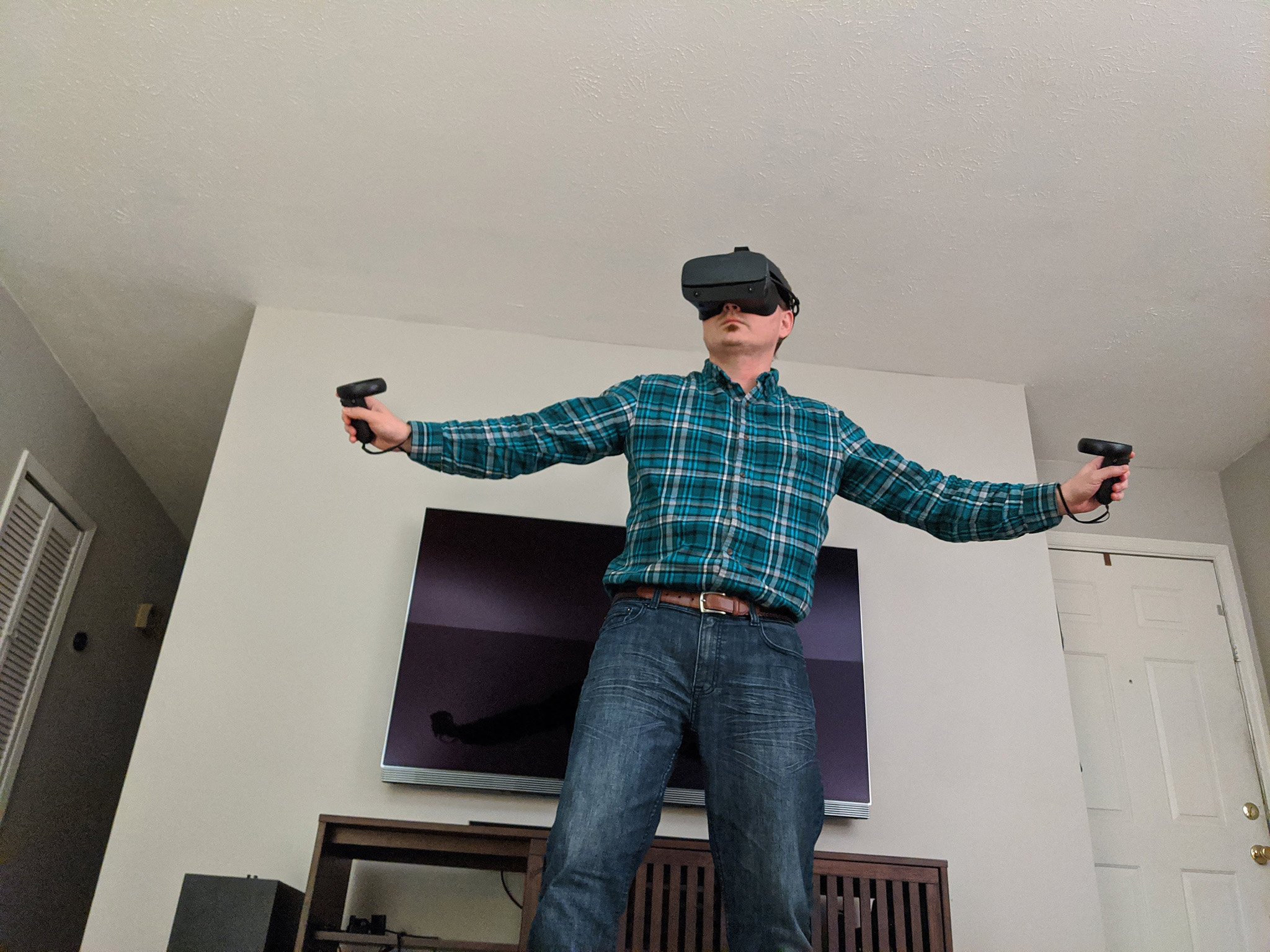
How small can your Oculus Rift S playspace be?
Reach for the sky
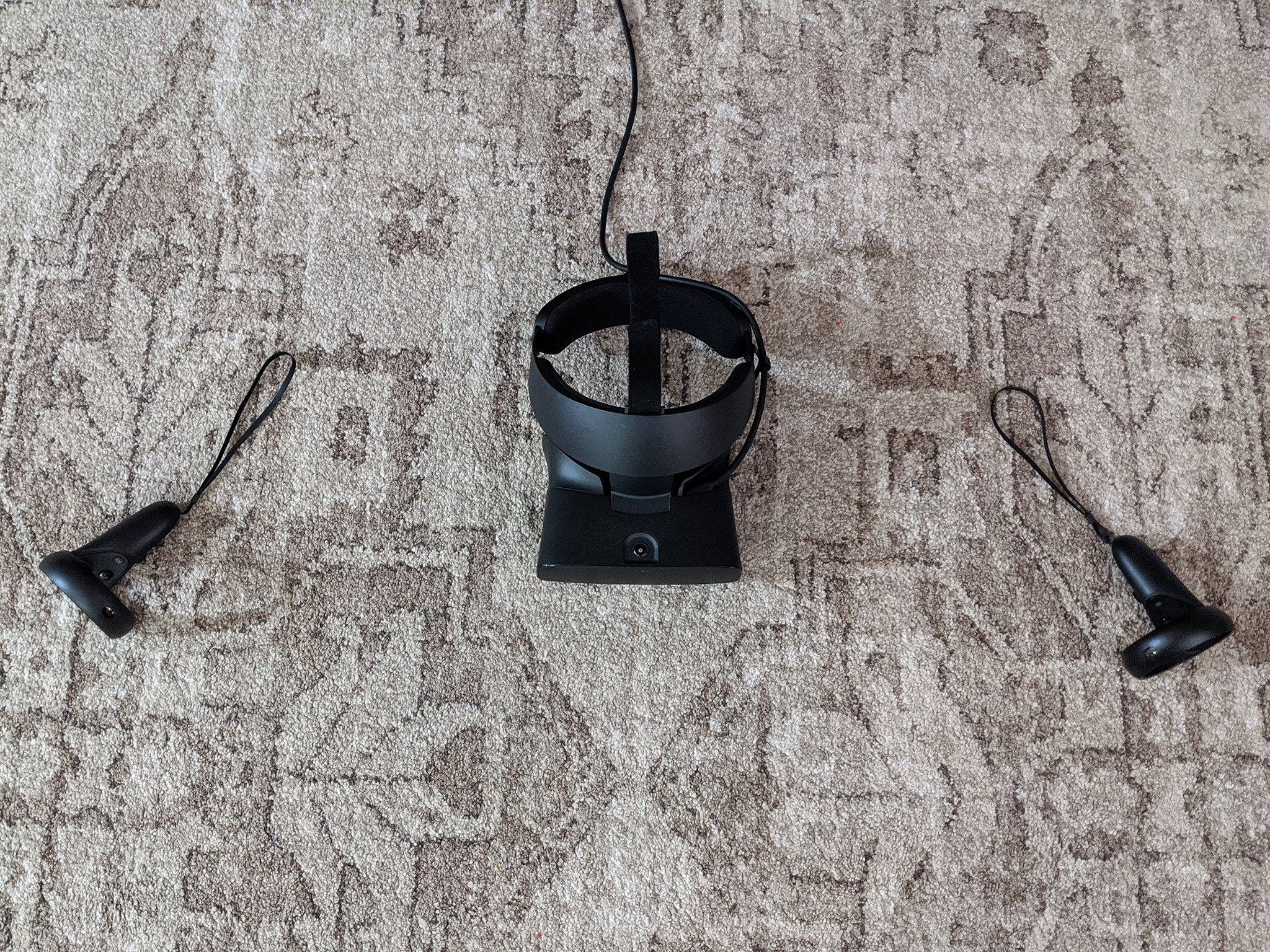
You don't need to dedicate an entire room to moving around if you want to play VR these days. While plenty of games offer the ability to walk around, duck, dodge, and otherwise move your body in seriously physical ways, most games also support a more limited range of movement for gamers who can't move as much or don't have space to. When you select standing/seated-only mode in Oculus Home, the Oculus Rift S will create a 3-foot-by-3-foot virtual ring around your body.
Envision a circle with a 3-foot diameter and place yourself in the center of it. You won't need more than this space for a standing or seated experience. That's just enough room to reach out and grab objects in many VR titles without knocking into real objects. However, since the average human arm span is between 5-6 feet, this means you won't be able to completely extend your arms on both sides without reaching through the virtual barrier.
This smaller play space is possible because games will adjust their virtual playspace to match your smaller physical play space. The idea here is that you won't be reaching or leaning too far if you're sitting in a chair or just standing there, and a grid will appear inside the virtual environment when you reach too far out, keeping you safe inside your boundaries.
How about roomscale?
If you want to be able to dodge bullets, walk around a bit, or just have some freedom of movement, roomscale VR is what you're looking for. A roomscale setup needs to be a bit bigger but still won't take up an entire room if you don't want it to. The Oculus Rift S supports roomscale VR setups as small as 6.5-feet-by-6.5-feet.
The Oculus Rift S utilizes Oculus Insight tracking to keep track of where you are in the room. This is achieved by a five-camera array located around the Oculus Rift S headset, and Oculus' software can remember the dimensions of your room between play sessions. That means once you set up the roomscale dimensions for the Oculus Rift S, you won't need to do it again until you want to change something.
Oculus doesn't advertise a maximum roomscale size because Oculus Insight doesn't technically have any sort of tracking limitation. Unlike SteamVR tracking, which utilizes lighthouses mounted to fixed positions in the room, Oculus Insight uses the visual information from the cameras to create a three-dimensional map of the area you specify. The only real size limitation comes from the cable, which is 5 meters long (roughly 16 feet). There is currently no wireless solution for the Oculus Rift S at this time.
What's the best way to play?
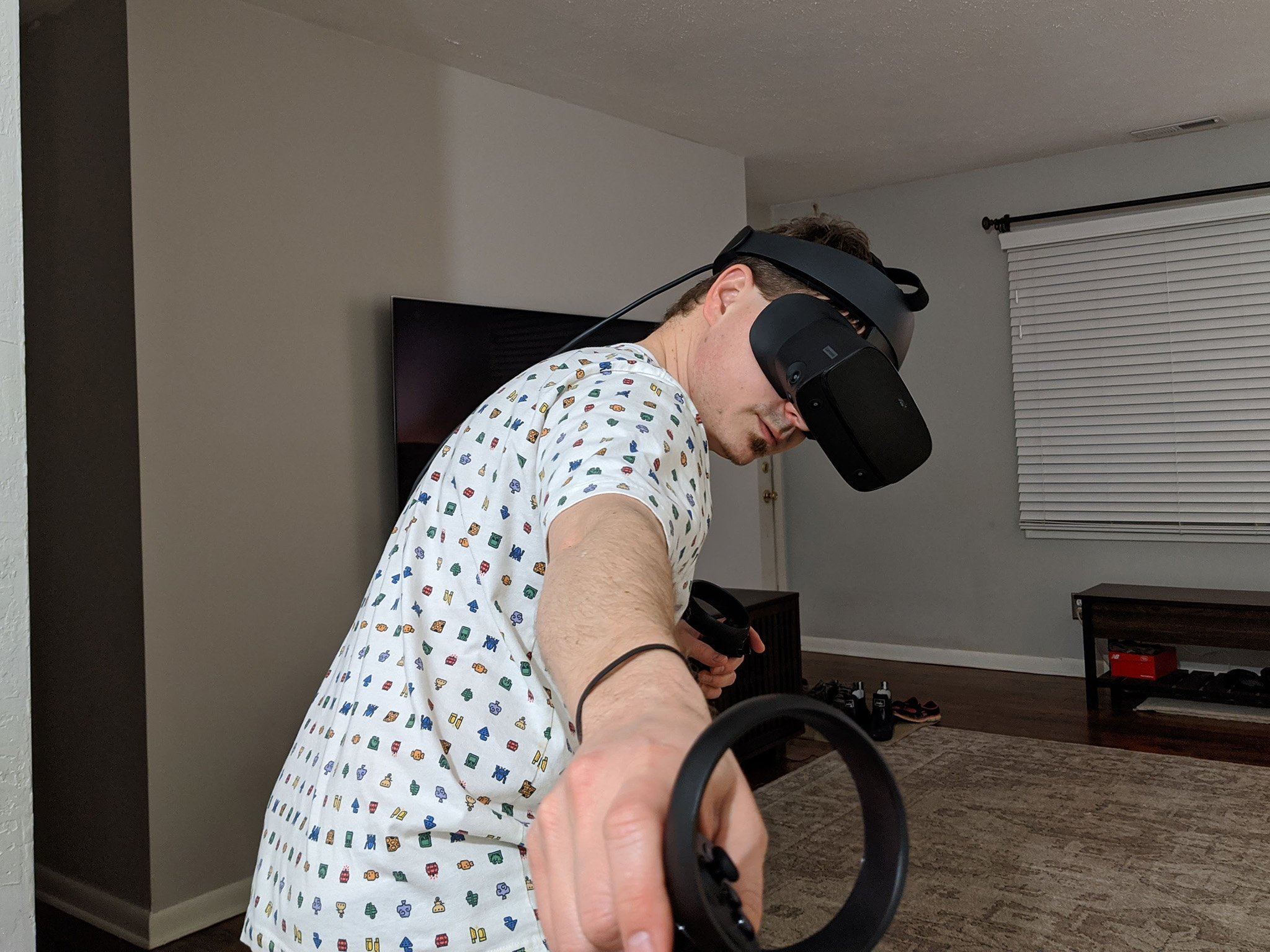
That question depends entirely on the games you play. Some games, like Super Hot VR or Pistol Whip, simply can't be played sitting down or in a small area. You won't need an entire room to be dedicated to playing these types of games, but you'll certainly need the larger 6.5-foot-by-6.- foot roomscale size area.
All the latest news, reviews, and guides for Windows and Xbox diehards.
If you're more interested in games like Moss, Stormland, or Skyrim VR, it's very possible to utilize the smaller 3-foot-by-3-foot space. Most VR games are forgiving when it comes to movement, as developers recognize that not all players are comfortable with moving around constantly, and some players may not have the physical ability to do so at all.

Nick started with DOS and NES and uses those fond memories of floppy disks and cartridges to fuel his opinions on modern tech. Whether it's VR, smart home gadgets, or something else that beeps and boops, he's been writing about it since 2011. Reach him on Twitter or Instagram @Gwanatu
